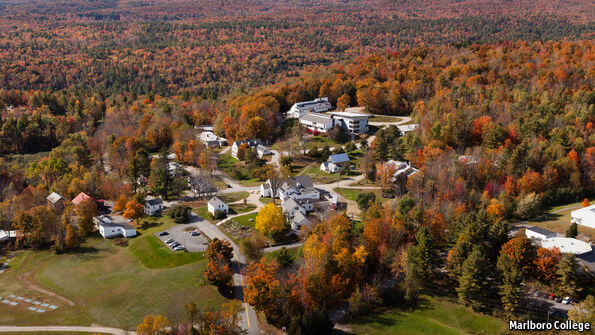
If you’re a rising senior, you’re looking forward to your upcoming college experience and expecting it to be one of the best chapters in your life. But what would happen to that expectation if you enrolled at a college that closes its doors when you’re a freshman. You’d be forced to transfer to another college and that one might also fail, forcing a second transfer in pursuit of your Bachelor’s degree. You would spend most of your precious college years losing friends, mentors, coaches, jobs, and probably some credits. Not to mention the loss to your peace of mind.
This is not a far-fetched scenario. Colleges fail. A number of colleges have been financially unstable in recent years. Many of them, particularly smaller institutions, were struggling before Covid-19 struck. Experts predict that up to 20% of four-year colleges will close in the next few years due to a combination of the pandemic, changing demographics, state disinvestment, and unaffordable tuition. If you’re planning to apply to colleges a few months from now, you should find out if the ones you choose are likely to be among the 80% or so that will survive.
Top-tier colleges with multi-billion dollar endowments were given millions in Federal pandemic relief (with many, but not all, returning the money). However, the most at-risk colleges were excluded from the relief legislation. This neglect, added to the problems noted above, will take a heavy toll. The schools that are most likely to fold are small, private colleges with relatively small endowments and low revenue per student. Some of them will have been operating at break-even or a small deficit for years. The pandemic will be their death knell.
Public colleges, even some large ones like Rutgers, are also in trouble. States need to pare back their education budgets as a result of the unplanned expenses and loss of revenue brought about by the pandemic. Public colleges never fully recovered from heavy cuts to their budgets in the wake of the Great Recession. Add the current crisis and some of them will be closed by their state and others will be converted into vocational/trade schools.
A number of small colleges have already closed or have announced a closing date. A few examples are cited below:
- MacMurray College, IL
- Urbana University, OH
- Holy Family College, WI
- Pine Manor College, MA
- Nebraska Christian College, NE
- Robert Morris University, IL
- Concordia University, OR
- School of Architecture at Taliesin, WI
- Watkins College, TN
- Marlboro College, MA
Colleges with less that 1,000 students are highly dependent on tuition for resources. Even a slight decline in enrollment can be ruinous because they don’t have large endowments to cushion the blow. To avoid closing, most small colleges are adopting severe austerity measures. Two examples are Notre Dame de Namur University, a small private college in Belmont, CA, and San Francisco Arts Institute, a small private arts college in San Francisco, CA. A number of small colleges facing this dilemma are seeking to merge with nearby colleges to avoid shutting down.
Even large public and private universities that can be expected to survive the pandemic will need to tighten their belts. Beware — your target universities may discontinue the degree programs, majors, and courses in which you’re most interested. There will also be reductions in faculty that will change the faculty-to-student ratio and impede mentorship programs that may be important to you.
COVID-19 has come and it will go, but the uncertainty plaguing students at certain colleges across the country will remain. Try not to share their predicament. Use available resources to determine the financial stability of colleges before you apply.
